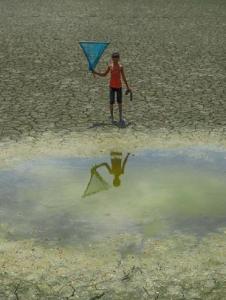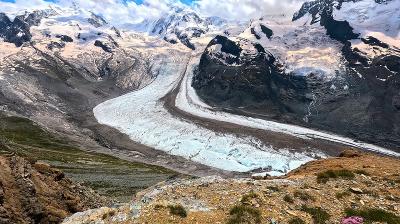
Climate
Climate is the average weather conditions for a particular location over a long period of time, ranging from months to thousands or millions of years. WMO uses a 30-year period to determine the average climate.
Overview
All life on Earth depends on the climate system, which consists of five major components:
- the atmosphere,
- the hydrosphere (oceans, lakes, and rivers),
- the cryosphere (ice and snow),
- the lithosphere (land surface), and
- the biosphere (living organisms).
The complex interactions and influences between these components, such as the exchange of energy, water, and carbon dioxide, determine our climate patterns and variability.
By observing and monitoring components of the climate system such as temperature, precipitation, air pressure, ice cover, and carbon cycles over a long period, we can better understand the climate and what drives changes to it and build climate models to predict our future climate.
WMO coordinates the study of the climate, its variations, extremes and trends and collaborates with partners worldwide to study the socio-economic climate impacts that support evidence-based decision-making to manage risks and adapt to a changing climate.
Impact
The climate system changes in time under the influence of its own internal dynamics and because of external forcings such as volcanic eruptions, solar variations, orbital forcing, and anthropogenic forcings including changes in the composition of the atmosphere and land-use.
According to the IPCC, the scale of recent changes across the climate system as a whole – and the present state of many aspects of the climate system – are unprecedented over many centuries to many thousands of years.
It is unequivocal that human influence has warmed the atmosphere, ocean and land. Widespread and rapid changes in the atmosphere, ocean, cryosphere and biosphere have occurred.
Climate variability and climate change can impact virtually every aspect of society, including food production, health, housing, energy, water resources, safety, tourism, finance, and transportation.
Monitoring climate conditions and predicting what the next season will bring or how our climate will change in the coming years and decades is critical for sustainable development.
WMO's response
WMO supports its Members to understand the Earth’s climate on global to local scales by developing technical standards for observing instruments and ensuring that the collected data are quality controlled and comparable, by monitoring the current climate and by ensuring that skillful predictions of the climate over the coming weeks, months, seasons and years, as well as climate change projections over the coming decades to longer periods, are available and freely accessible by the Members.
All these cascading sources of information are essential for climate-smart decision-making at all levels to deal with climate risks. Climate information is also essential for monitoring the success of mitigation efforts such as reduction of greenhouse gas emissions that contribute to climate change, as well as for promoting efforts to increase energy efficiency, to transition to a carbon-neutral economy and effectively pursue Sustainable Development Goals (SDGs).
WMO helps different sectors make climate-smart decisions by collaborating with our Members to routinely issue global climate predictions on seasonal to decadal timescales, and producing bulletin such as the El Niño/La Niña Update, and the Global Seasonal Climate Update.
WMO publishes the Global and Regional State of the Climate reports, the State of Climate Services reports, is involved in leadership capacity in the Global Framework for Climate Services, World Climate Research Programme, and provides Infrastructure Department activities, and Member Services activities to nations around the world.













